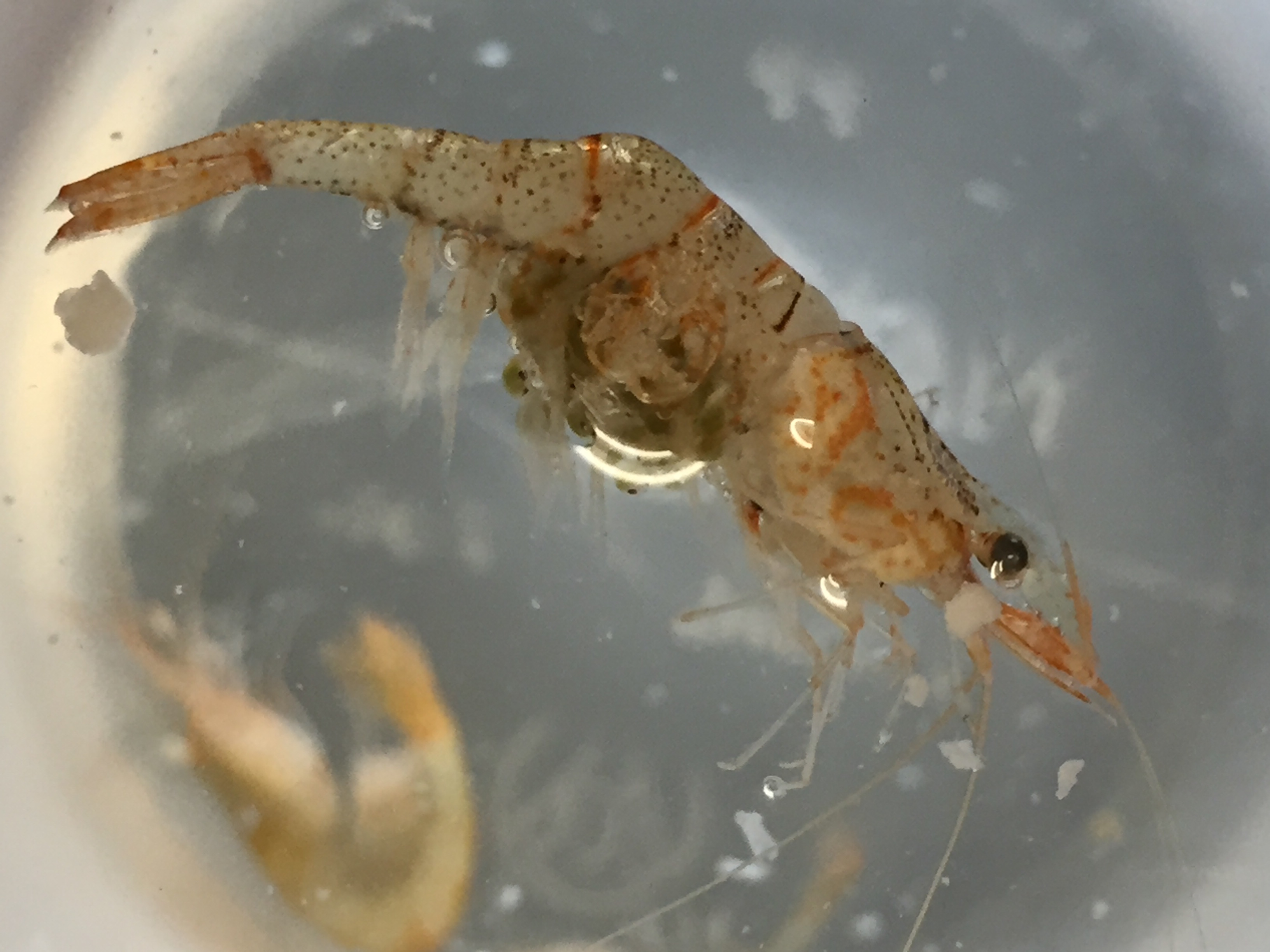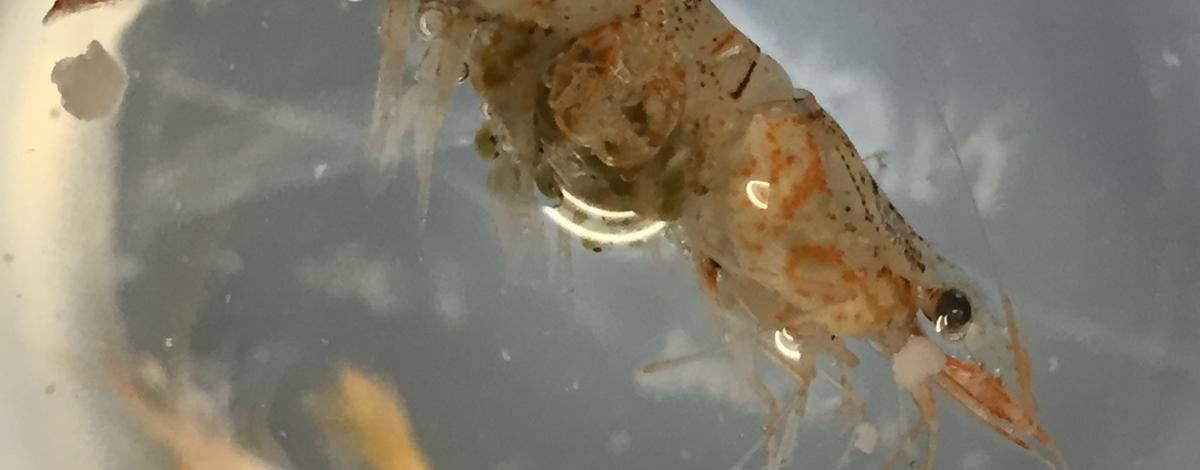Finding strange, non-native creatures living in the Boise River has nearly become a tradition, or at least, a recurring incident, and Idaho Fish and Game would like to see it end.
In a recent case, Fish and Game crews surveying the Boise River near Warm Springs Golf Course discovered a freshwater shrimp commonly known as “grass” or “ghost” shrimp that are native to the lower Mississippi River. They are typically sold in pet shops for aquariums, and they likely came from someone dumping an aquarium, or somehow escaped a private pond.
“That’s my best guess,” said Regional Fish Biologist John Cassinelli. “Those are the most likely explanations for how they got there.”
The first shrimp was found in a slow, placid stretch of the river while crews were introducing a mild electrical current, which stuns fish and other aquatic creatures so biologists can gauge populations.
The strange find piqued the biologists’ curiosity whether there might be more shrimp. They returned later and found several others – including an egg-carrying female – lurking beneath a cutback in the same, slow section of the river.
Cassinelli said he doesn’t know how widespread they are in the river, and doesn’t expect them to cause any problems.
“On the surface, it doesn’t seem like they’re a real threat to anything,” he said.
But they’re a reminder people should be careful to not inadvertently introduce any non-native species into Idaho’s waterways. First, it’s illegal, and second, some of these species can survive and cause problems for native species.
The shrimp adds to a growing list of strange species that have shown up in Treasure Valley waters. In 2016, a Plecostomus, aka suckermouth catfish or “common pleco” was found dead in the Boise River. It was 11-inches long, native to South America, and also a common aquarium fish.
In previous years, pacu, tilapia, Oriental weather fish, goldfish, koi, and others have been caught, or spotted, in Southwest Idaho waters.
Oriental weather fish, also known as “weather loach” have established populations in local waters, including the Weiser River, and are extremely hard to eradicate because they can survive in dried mud for part of the year.
Fish and Game staff have also seen, or had reports, of non-natives such as soft shell tortoise and snapping turtles.
Non-native fish and animals can harm native wildlife and its habitat. They can compete for limited food and resources, prey on natives, carry and transmit diseases, or just become nuisances, so it’s important to keep them out of the wild.


